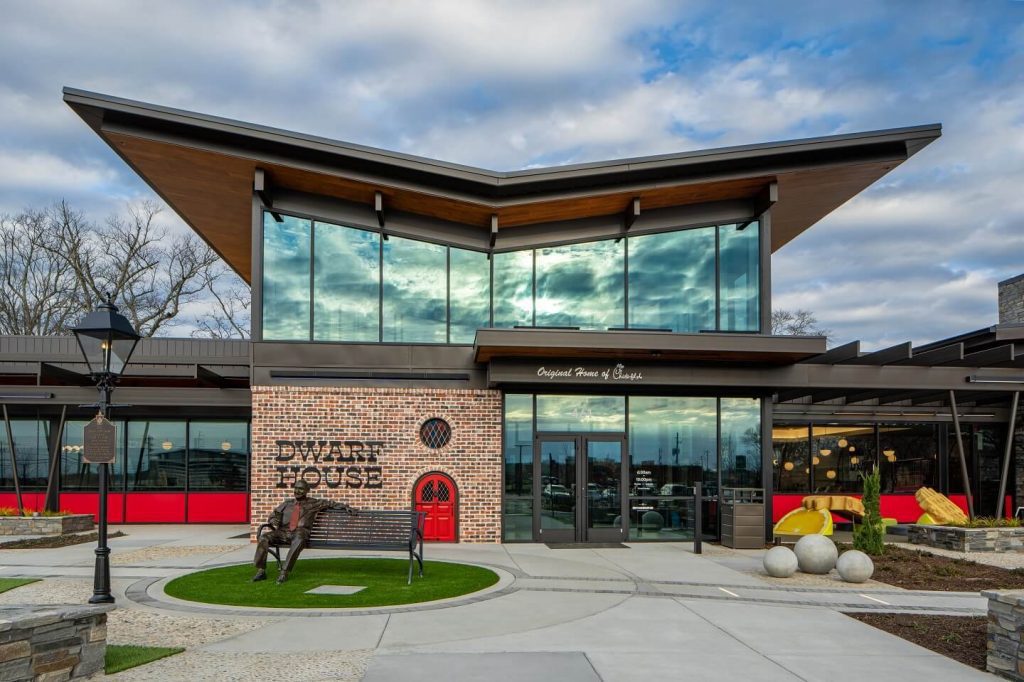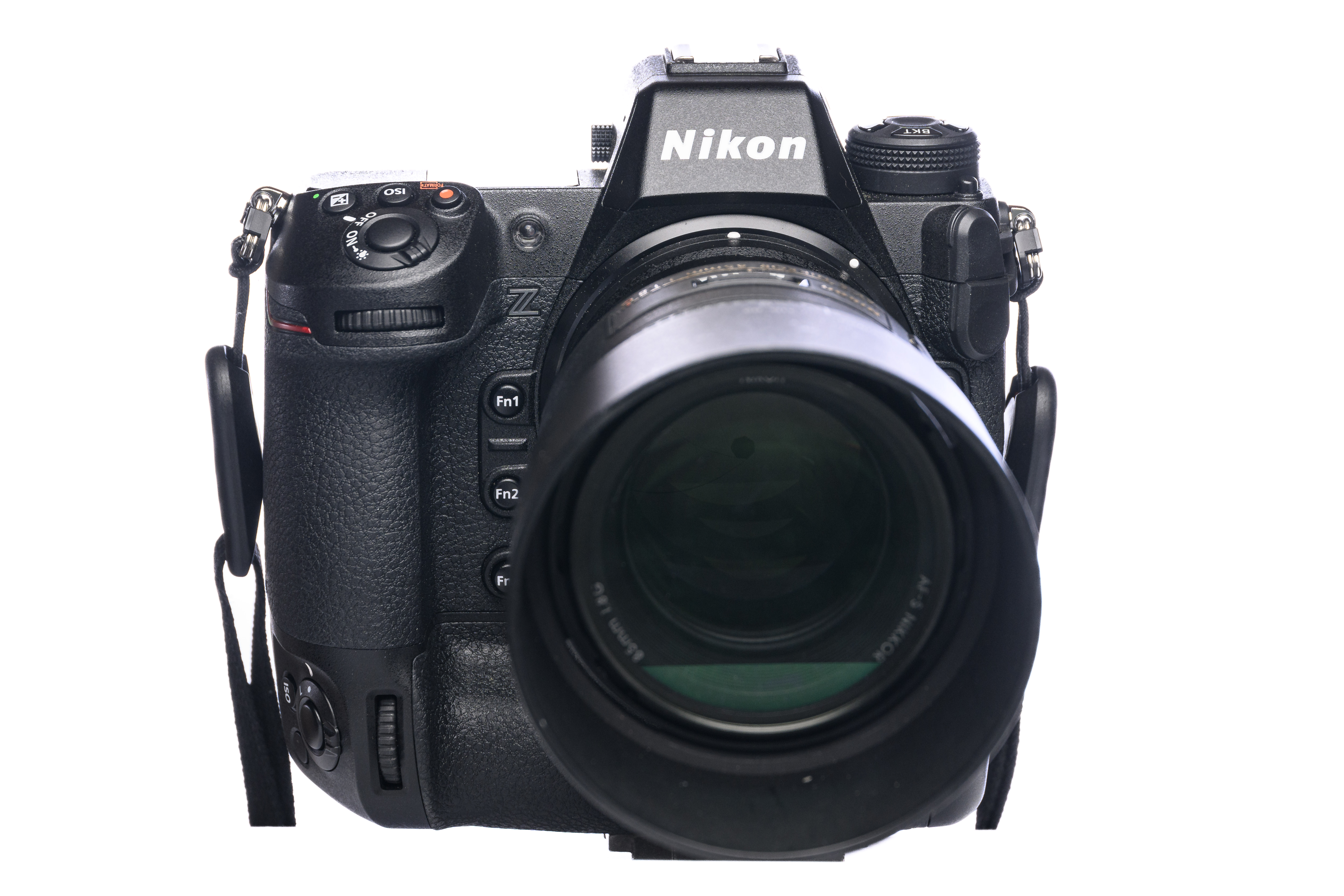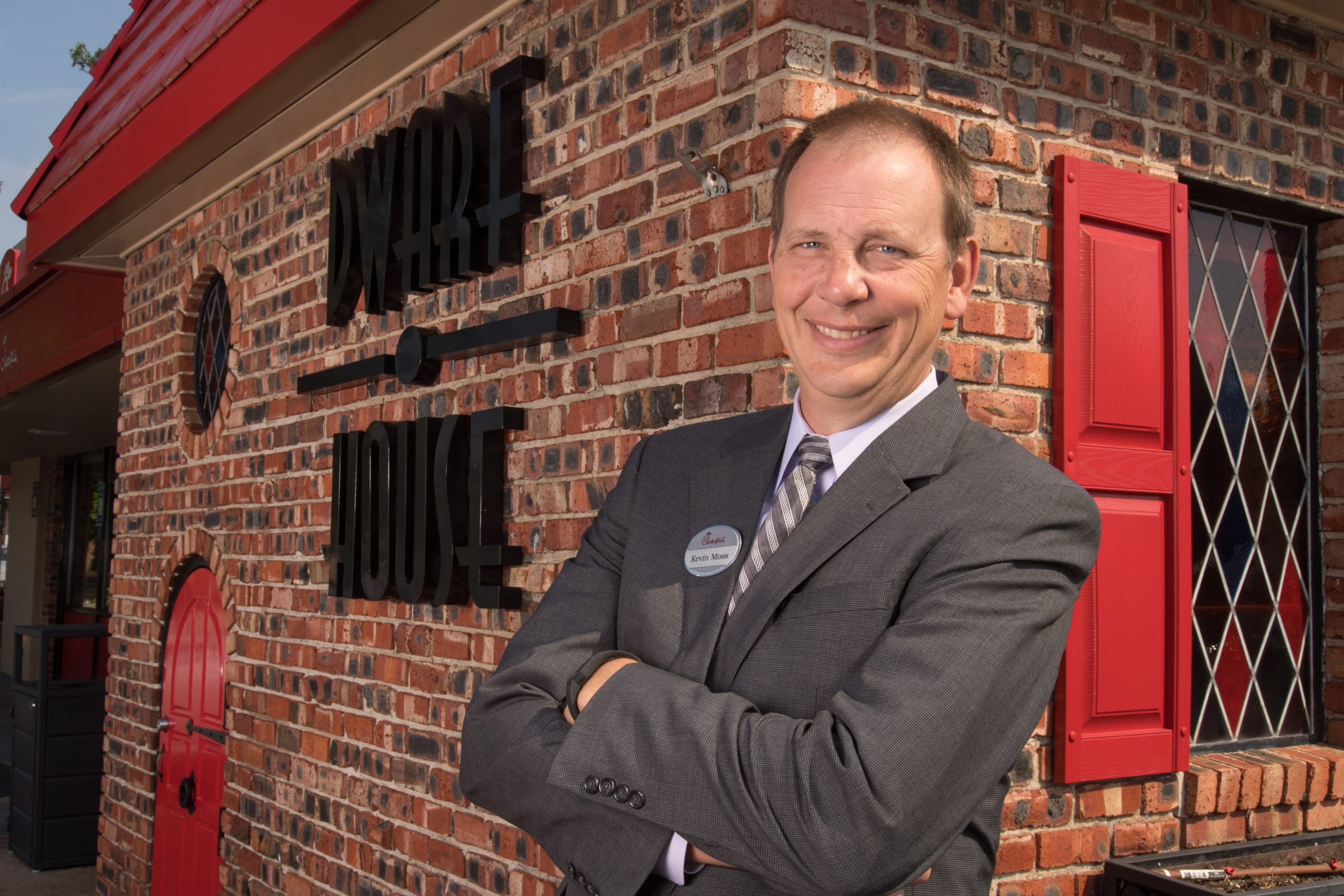Kevin Moss is standing in front of the older Dwarf House before renovation in Hapeville, Georgia.
Learning something new is always daunting, whether adapting to newly renovated equipment in a restaurant or getting to grips with a brand-new camera. Recently, I had the pleasure of visiting Chick-fil-A’s first freshly renovated restaurant, the Dwarf House, in Hapeville, GA. I had the chance to speak with Kevin Moss, the operator of the Dwarf House, who shared his experience with me. After a nine-month renovation, the restaurant finally reopened in February 2022. However, it took Kevin and his team over a year to feel comfortable with all the new equipment and design.
The Dwarf House had remained unchanged since its major renovation in 1967. But, as Kevin Moss pointed out, he would often ask some of the Grand Opening team how to use new equipment. They were often surprised that a seasoned Chick-fil-A operator didn’t know how to use something that had been around in many other Chick-fil-A restaurants for a few years. But, again, this emphasizes that experts need time to learn and adapt to new changes.

Similarly, I had a similar experience when I purchased my Nikon Z9 camera in December 2021. Going through the menu on the back of the camera was like walking through the newly renovated Dwarf House. The camera was packed with new features and functions I had no idea how to use. As a result, I found myself constantly referring to the manual and looking for videos and blogs that explained how to use certain functions.

From a psychological standpoint, learning something new requires cognitive effort and attention. When accustomed to a routine, our brains become wired to execute tasks without conscious effort. However, when faced with something new, our brains must allocate more cognitive resources to process and perform tasks, leading to overload and confusion. This is known as cognitive load, which can initially be overwhelming.
It is natural to feel less efficient initially when trying to learn something new. However, investing time and effort into learning new technology or processes is essential. The rewards of mastering a new technology or process are immense. Not only will you be more efficient and productive, but you will also be able to explore new possibilities and push beyond your previous limitations.
As Kevin Moss realized, it takes time and practice to master new technology fully. Similarly, I had to try to learn and adapt to my new camera. However, once you persevere and master the latest technology or process, you can achieve far beyond where you were before the change.
In conclusion, learning something new is always a challenging but rewarding task. Recognizing that feeling overwhelmed and less efficient is a natural part of the learning process is essential. However, investing time and effort allows you to master new technology or techniques and achieve personal and professional growth. Kevin Moss’s experience at the Dwarf House and my own experience with the Nikon Z9 demonstrate that even seasoned professionals must adapt and learn continuously to stay relevant and competitive. So, embrace the challenge, and you will undoubtedly come out more knowledgeable, adaptable, and efficient on the other side.

